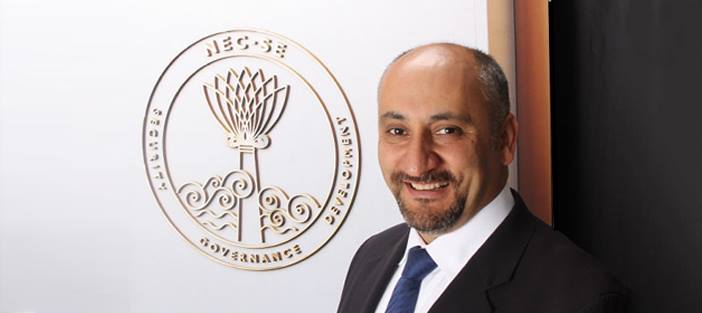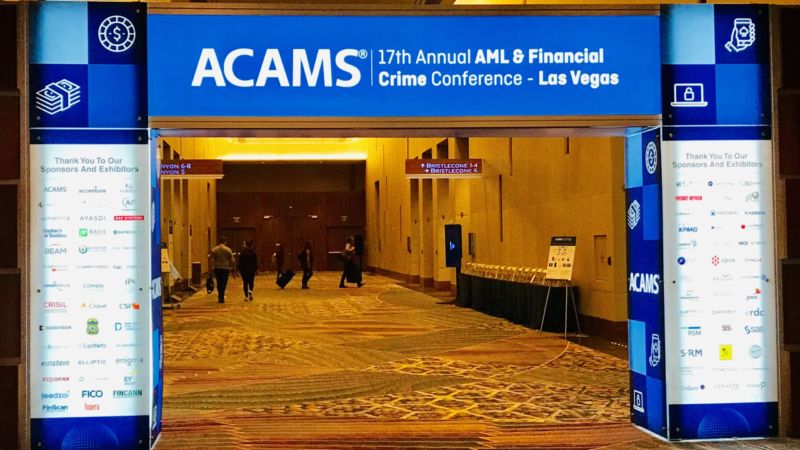An upcoming event of ACAMS, co-sponsored by Thomson Reuters, will address the challenges posed by various forms of money laundering & terrorist financing
Terrorists can finance their operations in any number of ways — drug trafficking, smuggling (oil, pharmaceuticals, antiquities), counterfeiting, fraud, theft, kidnapping, and extortion. They’re also constantly seeking ways to funnel their money through legitimate banking systems by using shell companies, front businesses, charities, and other money-laundering schemes.
An upcoming event of the Association of Certified Anti-Money Laundering Specialists (ACAMS) on March 11, 2020 at the IIT/Chicago-Kent College of Law, co-sponsored by Thomson Reuters, will address the challenges and risks posed by various forms of international money laundering and terrorist financing.
Panels at the event will discuss how terrorist organizations such as the Islamic State loot cities and sell the arts and antiquities they steal to auction houses, dealers, and collectors all over the world; and explore sanctions against Iran, as well as the financial patterns behind Iran’s support for various terrorist and quasi-terrorist organizations, such as the Iranian Quds Force, the Islamic Revolutionary Guard Corps, and Hezbollah.
Both panels will be moderated by Lt. Col. Sargis Sangari, USA (Ret.), an Assyrian Iranian-born U.S. Army Infantry and Special Operations Forces veteran. Sangari is also CEO and founder of the Near East Center for Strategic Engagement, a research institute that provides policy analysis for governments and other institutions. Co-moderating the panels will be Matthew Thomas, Senior Client Manager for Thomson Reuters.
Terrorism: Following the Money
For ACAMS members, these panels are workshop sessions designed to help anti-money laundering (AML) professionals understand the financial patterns and tactics used to support terrorist activity all over the world. “It doesn’t matter whether it’s humans, drugs, oil, art, or antiquities, when you understand how the trafficking of such commodities leads to the creation and sustainment of these terrorist networks, and you know how the money flows, you can choke it off,” says Sangari, who has been instrumental in identifying several such terrorist financing networks in Iraq, Iran, and Syria.
Arts and antiquities are a favorite revenue vehicle for terrorists, he explains, because selling them accomplishes two goals at once: raising money and destroying a culture. “When ISIS targets ancient cities in Syria and Iraq, they try to destroy the landscape and culture of the people living there,” Sangari says. “They then launder the money and treasure they steal and use it to finance their terrorist network.” In a cruel twist of fate, the terrorists then “turn around and use that money to attack the very people they stole it from.” These tactics are used against all cultures and people targeted by terrorists for eradication.

For the ACAMS event, Sangari will be interviewing Tess Davis, Executive Director of the Antiquities Coalition, a non-profit organization dedicated to fighting illegal trading of arts and antiquities, a practice known as “cultural racketeering.” Davis has also been instrumental in helping lawmakers develop the Illicit Art and Antiquities Trafficking and Prevention Act, which is currently under review in Congress, and is based in part on the European Union’s Fifth Anti-Money Laundering Directive (5AMLD).
Among the topics Davis will be addressing is how art is used to launder money, why it has become such an attractive vehicle for money laundering, and what red flags investigators and other intermediaries should look for to identify illicit transactions.
Sanctions Against Iran
The second ACAMS panel will address the complexities of managing sanctions against Iran and tracking the financial patterns that support various branches of Iran’s armed militias, including Hezbollah and its proxies.
Panelists for the discussion will include Richard Goldberg, Senior Adviser at the Foundation for Defense of Democracies and former negotiating team lead for the Trump administration’s most recent round of sanctions on Iran; and Michael Pregent, a Senior Fellow at the Hudson Institute and former Intelligence Officer with decades of counter-insurgency experience in the Middle East. Both men have extensive practical experience on the ground in the Middle East. Goldberg has had direct experience negotiating with Iran over their nuclear policy as the Director for Countering Iranian Weapons of Mass Destruction for the White House National Security Council, and Pregent is “our foremost expert on Iran in the United States,” according to Sangari.
“These individuals can really talk at the strategic, operational, and even tactical level,” Sangari explains, adding that this panel will give ACAMS members a rare glimpse into the “real-world landscape” of those who help shape and implement foreign policy in the messy reality that is the Middle East.
“Sanctions are complicated, because you have competing interests,” observes Sangari. “For example, we have sanctions on Iranian oil, yet we have allowed Iran to sell oil to Iraq. So, we pick and choose how to apply sanctions, and our allies pick and choose which sanctions they want to support.”
Further complications include situations where, for example, Iranian Ayatollahs have business interests in Germany, France, and Britain. Consequently, squeezing Iran’s Ayatollahs with sanctions may also mean exerting pressure on our European allies, who may or may not support the sanctions in question. Those caught in the middle of such matters — finance personnel, investigators, regulators, and compliance officers — must often make judgment calls about how strictly to apply the regulatory rulebook.
“We have all these requirements that we’re all supposed to share information together and be open with each other about how we’re trying to attack these networks, but some of these networks are involved in major interests in other countries, some of which are allies,” says Sangari. “So, with regard to sanctions, we have to sometimes make difficult decisions about when to squeeze and when to let it go.”







